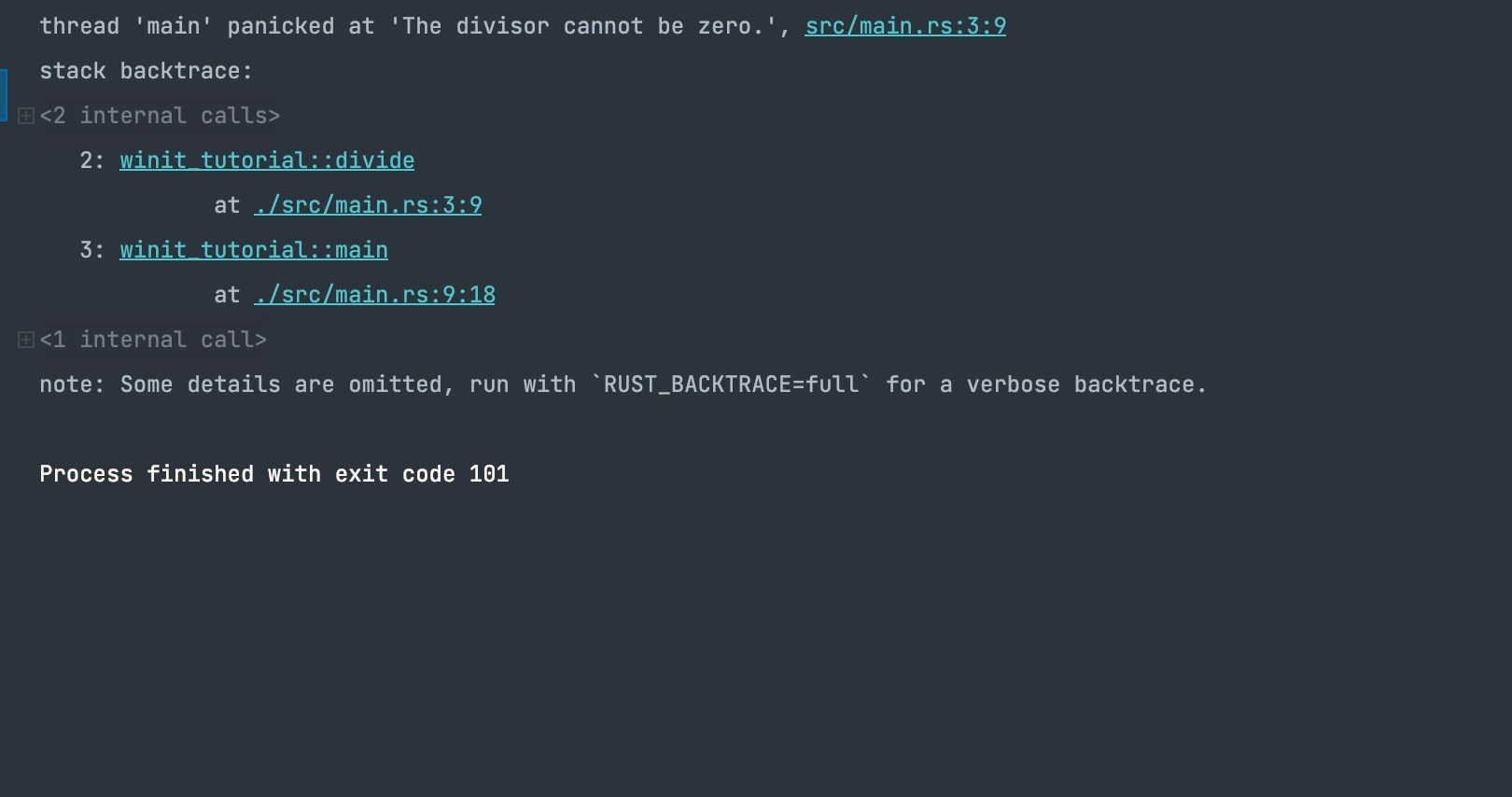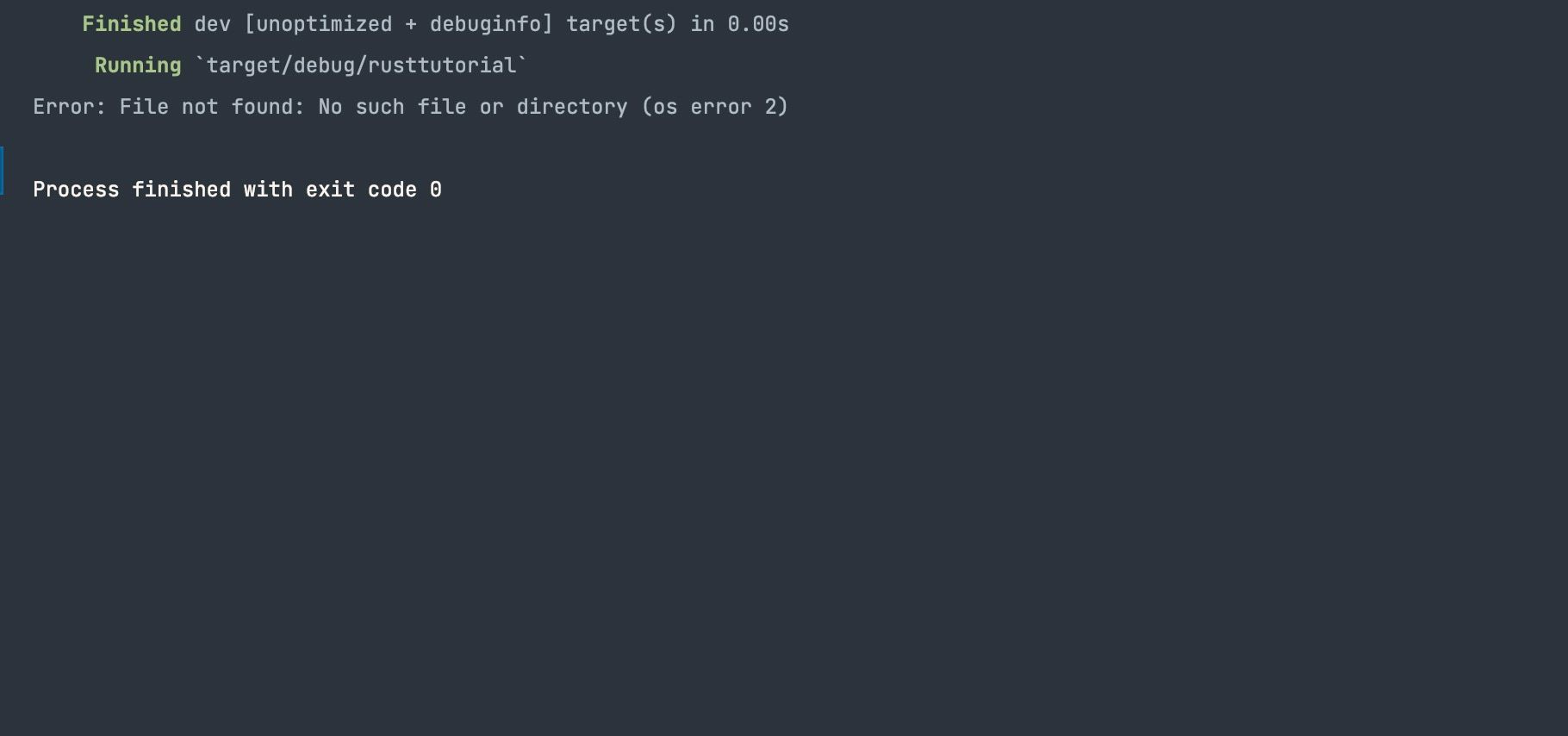Errors are inevitable and can occur for various reasons, from invalid user input to network failures, hardware malfunctions, or programming bugs. Error handling is the process of detecting, reporting, and recovering from such errors to prevent program crashes or data corruption.
Effective error handling is critical in Rust. It lets you create robust, reliable applications that can handle unexpected errors and failures. Rust’s error-handling mechanisms let you develop resilient, secure programs that are easier to maintain.
The Types of Errors in Rust
Rust has a rich type system that you can use to handle errors proficiently, according to their types. The benefits of Rust’s rich error-type system over traditional error-handling approaches can’t be understated. The error type system provides improved type safety, composability, expressiveness, and debuggability.
Here’s a list of common error types in Rust:
- The std::io::Error type represents I/O errors such as file not found, permission denied, or end-of-file reached.
- The std::num::ParseIntError type represents errors that occur string to integer parsing operations.
- The std::option::NoneError type represents errors from unwrapping empty Options.
- The std::result::Result<T, E> type is a generic Result type that you can use to represent any error.
Each error type has its own set of methods and traits for handling it in specific ways.
Here’s an example of error handling in Rust for a file reading operation:
use std::fs::File;
use std::io::Read;
fn read_file(path: &str) -> Result<String, std::io::Error> {
let mut file = File::open(path)?;
let mut contents = String::new();
file.read_to_string(&mut contents)?;
Ok(contents)
}
The read_file function reads the contents of the file in the specified path and returns it as a string. It returns a std::io::Error if the file open or read operation fails. The ? operator propagates the error and returns the error as a Result.
Error Handling Mechanisms in Rust
One key feature that contributes to Rust's safety is its error-handling mechanisms. There are four main error-handling mechanisms in Rust: the Result type, the Option type, the panic! macro, and the Error trait.
The Result and Option types allow for structured error handling. You can use the panic! macro to handle unrecoverable errors. The Error trait lets you define custom error types and custom error handling.
The Result Type
The Result type is a built-in type representing the outcome of an operation that can fail. It has two variants: the Ok variant, which represents success and contains a value, and Err, which represents failure and contains an error value.
Here’s how you can use the Result type to open a file and read its contents:
use std::fs::File;
use std::io::prelude::*;
fn read_file(file_path: &str) -> Result<String, std::io::Error> {
let mut file = File::open(file_path)?;
let mut contents = String::new();
file.read_to_string(&mut contents)?;
Ok(contents)
}
fn main() {
let result = read_file("file.txt");
match result {
Ok(contents) => println!("{}", contents),
Err(e) => println!("Error: {}", e),
}
}
The read_file function takes in the file path and returns a Result<String, std::io::Error> error. If the file read or open operation fails, the function returns the Err value. Otherwise, the function returns the Ok value. In the main function, the match statement handles the Result value and prints the result depending on the situation of the file operation.
The Option Type
The Option type is a built-in type representing a value's presence or absence. The Option type has two variants. Some represents a value, and None represents the absence of a value.
Here’s how you can use the Option type to retrieve the first element of a vector.
fn get_first_element<T: Clone>(vec: Vec<T>) -> Option<T> {
if vec.is_empty() {
None
} else {
Some(vec.first().unwrap().clone())
}
}
fn main() {
let vec = vec![1, 2, 3];
let result = get_first_element(vec);
match result {
Some(element) => println!("{}", element),
None => println!("The vector is empty."),
}
}
The get_first_element function returns an Option<T> type. If the vector is empty, the function returns None; else, the function returns Some containing the first element of the vector. In the main function, the match statement handles the Option value. If the Option evaluates to Some, the function prints the first element. Otherwise, the function prints a message indicating that the vector is empty.
The panic! Macro
The panic! macro provides functionality for handling unrecoverable errors in Rust. On calling the panic! macro, it prints an error message and terminates the program.
Here's an example of using panic! macro to indicate that a function has invalid arguments.
fn divide(dividend: f64, divisor: f64) -> f64 {
if divisor == 0.0 {
panic!("The divisor cannot be zero.");
}
dividend / divisor
}
fn main() {
let result = divide(4.0, 0.0);
println!("{}", result);
}
The divide function checks if the divisor is zero; if the divisor is zero, the function calls the panic! macro with an error message; otherwise, the function computes and returns the result
The main function calls the divide function with invalid arguments to trigger the panic! macro.
Here’s the error message:
The Error Trait
The Error trait is a built-in trait that defines the behavior of error types. The Error trait provides functionality for defining custom error types and custom error handling.
Here’s an example of defining a custom error type that represents a file not found error.
use std::error::Error;
use std::fmt;
use std::io::Read;
#[derive(Debug)]
struct FileNotFound(String);
impl fmt::Display for FileNotFound {
fn fmt(&self, f: &mut fmt::Formatter) -> fmt::Result {
write!(f, "File not found: {}", self.0)
}
}
impl Error for FileNotFound {}
fn read_file(file_path: &str) -> Result<String, Box<dyn Error>> {
let mut file = std::fs::File::open(file_path).map_err(|e| FileNotFound(format!("{}", e)))?;
let mut contents = String::new();
file.read_to_string(&mut contents)?;
Ok(contents)
}
fn main() {
let result = read_file("file.txt");
match result {
Ok(contents) => println!("{}", contents),
Err(e) => println!("Error: {}", e),
}
}
The custom error type is the FileNotFound struct. The type contains a file path, and the FileNotFound type implements the Display trait to return user-friendly error messages and the Error trait to indicate that this is an error type.
In the read_file function, the FileNotFound error type represents a file not found error, and the map_err method converts the std::io::Error into a FileNotFound error. Finally, the Box<dyn Error> type allows the function to return any type that implements the Error trait.
The main function calls the read_file function with the file path and, if it finds the file, prints its contents to the console. Otherwise, it prints the error message.
Here’s the result for a file that doesn’t exist:
You Can Bank on Rust’s Ownership Model for Program Safety
Coupled with Rust’s magnificent error-handling mechanism, Rust also utilizes an ownership model that helps ensure that your programs are memory safe.
Rust ensures the ownership rules with a borrow checker at compile time before your program runs.



